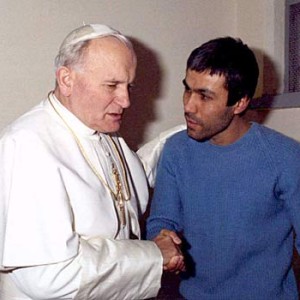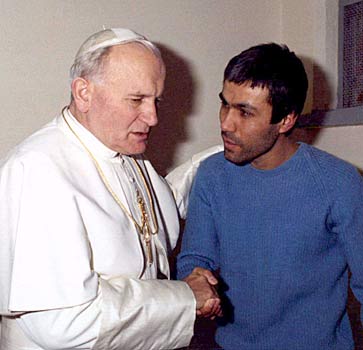In Acts 13, during Paul’s first homily to the Gentiles, in Pisidian Antioch, he explains some Jewish history. At one point (Acts 13:22), he says:
After removing Saul, He made David their king. He testified concerning him: ‘I have found David son of Jesse a man after My own Heart; he will do everything I want him to do.’
And sure enough, in 1 Samuel 13:13-14, the prophet Samuel warns Saul,
“You acted foolishly,” Samuel said. “You have not kept the command the LORD your God gave you; if you had, he would have established your kingdom over Israel for all time. 14 But now your kingdom will not endure; the LORD has sought out a man after his own heart and appointed him leader of his people, because you have not kept the LORD’s command.”
But calling David a man after God’s own Heart is a strange statement. This is the same David was responsible for much bloodshed both before and after becoming king, had a number of wives (1 Chronicles 14:3) and concubines (2 Samuel 5:13), and in the most notorious incident, impregnated Bathsheba, the wife of one of his soldiers, then had the soldier killed in the line of duty to cover it up (2 Samuel 11). We’re left without question that God rebukes David for this, and punishes him and his household (2 Samuel 12).
So why did God refer to this rash and often sinful king as a man after His own Heart? Fr. Arne Panula, my spiritual director, explained it to me last Friday. As part of punishment upon David (2 Samuel 12:11-12), God permits David’s eldest son Absalom to usurp the throne, causing David to flee into exile (2 Samuel 15:14). Absalom then sleeps with David’s concubines, just to spite him (2 Samuel 16:21-22) and plans to kill his father (2 Samuel 17:1).
David ultimately organizes an army to retake Jerusalem, but he instructs his men, “Be gentle with the young man Absalom for my sake” (2 Samuel 18:5). As it happens, Absalom gets caught by the hair in the branches of an oak tree, “leaving him hanging in midair, while the mule he was riding kept on going” (2 Samuel 18:9). The original soldier who finds him remembers that he’s not to be harmed (2 Samuel 18:12), but Joab, David’s commander, takes three javelins and spears him, and then his men finish killing him (2 Samuel 18:14-15).
Meanwhile, messengers are running from the battlefield back to David. The first one, Ahimaaz, immediately ran to notify David that Absalom was captured, without waiting around to find out what happened to him. After Absalom was killed, a Cushite messenger followed to deliver the bad news. Pay close attention to King David’s reaction, and what it tells us about God’s own love for us (2 Samuel 18:28-33):
Then Ahimaaz called out to the king, “All is well!” He bowed down before the king with his face to the ground and said, “Praise be to the LORD your God! He has delivered up the men who lifted their hands against my lord the king.” The king asked, “Is the young man Absalom safe?” Ahimaaz answered, “I saw great confusion just as Joab was about to send the king’s servant and me, your servant, but I don’t know what it was.” The king said, “Stand aside and wait here.” So he stepped aside and stood there.Then the Cushite arrived and said, “My lord the king, hear the good news! The LORD has delivered you today from all who rose up against you.” The king asked the Cushite, “Is the young man Absalom safe?” The Cushite replied, “May the enemies of my lord the king and all who rise up to harm you be like that young man.”The king was shaken. He went up to the room over the gateway and wept. As he went, he said: “O my son Absalom! My son, my son Absalom! If only I had died instead of you — O Absalom, my son, my son!”
And that’s why he’s a man after God’s own heart. God knows what it’s like to have rebellious sons, to have sons who act like they hate Him, and who try to take everything that rightly belongs to Him. And like David, God will secure His rightful throne. But He doesn’t do so out of hatred for sinners, but always with a concern for their well-being and salvation (just as David handicapped his men, by ordering them to retake Israel without harming Absalom). Ultimately, David acts the most like God when he’s willing to die in the place of his sinful son, just as Christ died for our own sins.
Just as Absalom (who, I should note, was David’s heir, as his eldest son) wanted his inheritance early, Jesus describes Heaven as our inheritance (Matthew 25:34), and in the parable of the prodigal son, He uses the image of a son who demands his inheritance early to represent those who seek earthly pleasures over the joys of Heaven (Luke 15:12). The parallel between God and us, and between David and Absalom even extends to names. Absalom’s name means “Peace is my Father,” or “Son of Peace.” Meanwhile, Christ is prefigured as the “King of Peace” by Melchizedek (Hebrews 7:1-3). So all who are followers of Christ, and are sons of the Father, are “sons of Peace” just like Absalom. And God’s message is that He’d gladly die in our place to avoid us the pains of eternal death. And then He did so.
At this point, Fr. Arne pointed to a copy of this photo on his wall:
It’s Pope John Paul II visiting Mehmet Ali Agca in prison to comfort him. Agca, if you don’t recall, was the man who had tried to kill the pope. The would-be assassin and his would-be victim sat alone and talked intimately for some time, and the pope refused to reveal the contents of what the two men had said:
“What we talked about will have to remain a secret between him and me,” the Pope said as he emerged from the cell. “I spoke to him as brother whom I have pardoned, and who has my complete trust.”
We do know that the pope left him a rosary, and that years later, Agca announced his intention to convert from Islam to Catholicism.
This paternal love for a man who makes himself your enemy is the love modeled by King David, by Pope John Paul II, and best of all by Jesus Christ Himself. We should all strive to be men (and women) after God’s own heart, by loving and caring for our enemies in this way.


It is odd toe that such a fuss was made about his adultery and no fuss whatsoever made of his concubinage. How are we to avoid the inference that God was ok with the concubinage?
Wasn’t having a concubine an acceptable/legal/moral practice in those times?
Do moral rules change? I thought not.
HocCogitat,
It’s a good question.
The Israelites don’t seem to grasp the monogamous marriage concept very quickly. In part, this is because of the culture they lived in: a man, and particularly a king, was judged by the number of wives and concubines he had, since being able to care for hundreds of women made you seem powerful, wealthy and manly.
When David sinned in these capacities, he was almost certainly doing so in total ignorance, without a thought that it might be somehow sinful. In contrast, with Bathsheba, he knows what he’s doing is wrong, and does it anyhow.
Christ says in Matthew 19:8, on the subject of divorce: “Moses permitted you to divorce your wives because your hearts were hard. But it was not this way from the beginning.” And throughout Matthew 19, Christ makes much clearer the prohibitions against divorce, adultery, and polygamy. So it isn’t that God used to think a certain category of sins weren’t bad, and then changed His Mind. They were always wrong, God just had lower expectations in the Old Testament. Jesus is essentially announcing that He’s raising the bar. I can see how that would be considered a change in the moral rules, but it’s really just enforcing the rules which were around from the beginning.
In Christ,
Joe
I think another reason that David is a man after God’s own heart is that he was called and chosen by God.
So, no matter the terrible things that David had done, he still belonged to God. And God loves His own, called and chosen.
Shepherds recognise their own 🙂
Amen! A Father seeing a bit of Himself in His son.
theoldadam, I’m not sure it’s enough to say that David was called “a man after God’s own heart” because he had been called first by God. Certainly, this is a portion, but it cannot be the whole.
Saul was also called and chosen by God (1 Samuel 9:16), but he subsequently turned away from the Lord, deliberately disobeying in order to do what he thought best. Both even asked to be forgiven. The difference between the two is that David showed repentance, while Saul did not repent, but insisted that Samuel forgive him (1 Samuel 15:24-25). This is the crucial point: we fall and make mistakes, but if we will turn again and show contrition, we will be forgiven.
Kerath25,
Yes. Good point.
It does seem that God somehow leads His people to repentance. Over and over and over again.
My name actually is “David” and I’ve always loved how my biblical namesake is described, as “a man after God’s own heart”.
I’ve been thinking about this a lot over the last few days. I wonder if David is described in this way because he had truly grasped certain aspects of God’s character and demonstrated these to the world, reflecting the very heart of God:
1. Like Jesus, David knew in the depths of his being that he was God’s beloved son. This closeness and intimacy comes across particularly in the psalms he wrote.
2. I think most importantly, David really understood grace, as demonstrated par excellence in his encounter with Mephibosheth in 2 Samuel 9. http://restlesspilgrim.net/blog/2011/01/04/carried-to-the-table/
Why I’ve always felt David was a “man after God’s own heart” is David’s beautiful insights into God’s nature. By some accounts David is responsible for writing over a third of the Psalms. In them he proclaims God’s love, forgiveness, tenderness, protection, God’s security and strength, etc. For just a brief look at how insightful David was read Psalms 51, and 103 for starters. This was a man who was a shepherd, a warrior, adulterer, King, musician, and much more. How in the world did he have time to draw within himself and meditate on the Lord “day and night” then have time to write poetry/music to declares the Lord’s goodness?! Truly a man after the Lord’s heart. Would that we all were as hungry to pursue the Lord like a deer panting for water!
I have been taking a special keen study about the life of this man called David, i discovered many unqualified traits in him as a man but on the contrary i learnt grace grace grace was fully at work in his life. God is an unquestionable God if He calls anyone a man after his own heart who can question him? He could be any of us too. This article has immensely blessed my knowledge and all the contributions and comments. Thank you